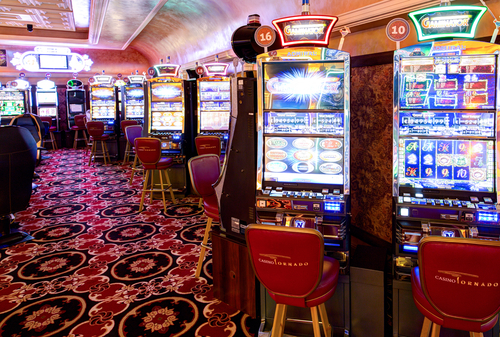
Casino games have long captured the imagination of people around the world, becoming an important part of both leisure and culture. From the sparkling lights of Las Vegas to the engaging experience of online gaming, these activities evoke thrill, risk, and sometimes even a sense of nostalgia. They are not just simply pastimes; they have woven themselves into the fabric of society, influencing everything from cinema and songs to clothing and writing.
The charm of casino games transcends the gambling aspect, tapping into broader themes of serendipity, possibility, and social interaction. As players assemble around a poker table or turn the wheel of fortune, they engage in an ancient ritual that echoes with our shared desire for excitement and instability. This fascination has led to the rise of countless references in films, music, and electronic games, showcasing how intensely entrenched these pastimes are in mainstream culture. Whether it is the high-stakes tension of a traditional heist movie or the colorful nightlife portrayed in music videos, casino games have established a substantial niche that reflects our relationship with risk and reward.
Historical Importance of Casino Games
Gambling games have played a crucial role in cultural contexts throughout the ages. Stemming from ancient societies, forms of chance were often connected to ceremonies or gatherings. For example, early forms of these activities can be linked back to ancient China and the Roman Empire, where dice games and wagering on outcomes were common pastimes. These games not only functioned as leisure but also as means of social interaction, facilitating connections among individuals within communities.
As societies evolved, so did the complexity and structure of casino games. New88 đăng nhập The creation of official casinos in the 17th century, particularly in the Italian region, marked a significant shift in how games were perceived and organized. With designated spaces for gambling, the casino became a social hub where people from different backgrounds convened. This evolution contributed to the legitimization of the industry, transforming it from a mere pastime into an established industry that shaped economy and policy.
The impact of casino games on popular culture cannot be overlooked. As they were brought into the limelight in books and movies, games such as poker and blackjack became icons of risk, luck, and strategy. Famous characters and narratives have emerged around these activities, reflecting societal attitudes towards luck, prosperity, and vice. This fascination with gambling games has permeated various forms of entertainment, cementing their status in the collective consciousness and linking them to broader cultural stories throughout the ages.
Portrayal of Casino Games in Entertainment
Gambling games have long been a popular topic in various forms of media, reflecting both the thrill and nuances of the world of gambling. Films such as Ocean’s 11 and Casino Royal portray characters who navigate high-stakes environments, showcasing not only the attractiveness of the casino atmosphere but also the methods and choices that come with playing popular games like Texas Hold’em and blackjack. These films often dramatize the exhilaration of winning and the potential results of losing, encapsulating the dangers involved in gambling.
Television shows have also explored the realm of casino games, often integrating them into the narrative as a context for story progression and tension. Shows like Vegas depict the stories of gambling employees and patrons, highlighting the lively, often disorderly energy of the gaming floor. Docuseries featuring intense gambling competitions further emphasize the fascination of casino games, drawing viewers into the tension and strategy involved in each round. Through these portrayals, media not only entertains but also stimulates conversations about fortune, skill, and the nature of randomness.
Digital games have increasingly incorporated casino games into their development, allowing players to experience the feeling of gambling without financial exposure. Titles within the landscape of online gaming often include online slot machines, online poker, and other casino favorites, creating an interactive experience that mirrors traditional gambling. These virtual portrayals make gambling activities accessible to a global audience, appealing to both gamblers and those who enjoy the rush of simulation. As a outcome, the portrayal of casino games in media continues to shape public perception and cultural significance, highlighting their role in entertainment and culture.
Impact of Casino Games on Society
Gambling activities have a meaningful effect on communities, influencing multiple facets of societal norms and social behavior. They often serve as a venue for community engagement, where people come together to enjoy a common experience. Game nights with friends or trips to casinos become group events that foster connections and create shared moments. This collective aspect boosts the fun value of casino games, making them a popular choice for festivities and leisure activities.
Additionally, gambling activities have been depicted in countless movies, television shows, and literature, influencing views and attitudes towards gaming and betting. Icons like James Bond playing baccarat or the intense poker scenes in films have cemented these games in the collective imagination. This depiction often idealizes the culture associated with gambling, drawing in new players and impacting trends in both fashion and behavior. These portrayals can ignite curiosity and lead to a deeper investigation of the nuances of gaming.
However, there are also adverse implications linked to the widespread appeal of casino games. The allure of quick monetary gain can lead to gambling addiction and economic troubles for some people. Society must grapple with these issues, promoting responsible gaming and awareness of the dangers involved. Balancing the entertainment value of casino games with the risks is vital to ensure that they remain a beneficial aspect of our societal fabric.
